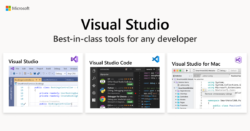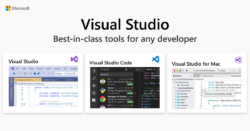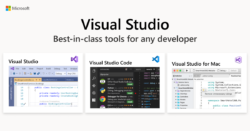Perl
The Perl Programming Language at Perl.org. Links and other helpful resources for new and experienced Perl programmers.
Who is Perl for?
- Data Analysts
- Database Administrators
- Software Engineers
- System Administrators
- Web Developers
What are the benefits of Perl?
- Cross-Platform
- Highly Extensible
- Open Source
- Widely Used
Things to consider
- Learning Curve
- Steep Learning
What is Perl?
Perl is a high-level, general-purpose, interpreted, dynamic programming language.
It was originally developed by Larry Wall in 1987 as a general-purpose Unix scripting language to make report processing easier.
Since then, it has undergone many changes and revisions and become widely popular for a variety of tasks including system administration, web development, network programming, GUI development, and more.
Who Should Use Perl?
Perl is a great choice for anyone who needs a powerful, versatile, and reliable scripting language.
It is especially useful for system administrators, web developers, network programmers, and GUI developers.
It is also a great choice for those who need to quickly develop scripts for automation or data processing.
Key Benefits and Features
- Powerful and versatile scripting language
- Easy to learn and use
- Highly portable and runs on many platforms
- Supports many programming paradigms
- Supports many third-party modules and libraries
- Excellent documentation and support
How Does Perl Compare to Its Competitors?
Perl is a powerful and versatile scripting language that is easy to learn and use.
It is highly portable and runs on many platforms, supports many programming paradigms, and has excellent documentation and support.
It is also highly extensible, with many third-party modules and libraries available.
In comparison to its competitors, Perl is a great choice for anyone who needs a powerful, versatile, and reliable scripting language.
It is especially useful for system administrators, web developers, network programmers, and GUI developers.
It is also a great choice for those who need to quickly develop scripts for automation or data processing.
Data Analysts
Keep up to date about Analytics offers like Perl
Privacy| Features |
|---|
Help & Support
- What is the Perl Foundation?
- The Perl Foundation is a non-profit organization dedicated to the advancement of the Perl programming language.
- What is the Perl Mongers group?
- Perl Mongers is a worldwide group of local Perl user groups that meet regularly to discuss Perl and related technologies.
- What is Perl?
- Perl is a high-level, general-purpose, interpreted, dynamic programming language.
- What is the latest version of Perl?
- The latest stable version of Perl is 5.32.0, released on June 2020.
- What platforms does Perl run on?
- Perl runs on almost every major platform, including Windows, Mac OS X, Linux, and many other Unix variants.
Comparisons
Analytics for Data Analysts
 Perl / Amazon Web Services (AWS)
Perl / Amazon Web Services (AWS)- Perl / Microsoft Azure
- Perl / IBM Cloud
- Perl / Marketo Engage
- Perl / Google Analytics
- Perl / Data Quality Pro
 Perl / Python
Perl / Python- Perl / Java
 Perl / D3.js
Perl / D3.js Perl / KNIME
Perl / KNIME
Cloud Computing for Data Analysts
Data Visualization for Data Analysts
Programming Languages for Data Analysts
Software Development for Data Analysts
Cloud Computing for Database Administrators
Programming Languages for Database Administrators
Software Development for Database Administrators
Analytics for Software Engineers
Programming Languages for Software Engineers
Software Development for Software Engineers
Web Development for Software Engineers
Analytics for System Administrators
Cloud Computing for System Administrators
Software Development for System Administrators
Analytics for Web Developers
- Perl / SEOquake
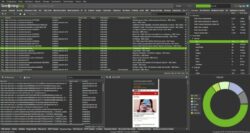 Perl / Screaming Frog
Perl / Screaming Frog- Perl / AccuRanker
- Perl / Authority Labs
- Perl / OpenCart
- Perl / SEO Site Checkup
- Perl / Lunar DeepCrawl
- Perl / SEObility
- Perl / SEO Analyzer
- Perl / Beanstalk
 Perl / Sitebulb
Perl / Sitebulb- Perl / Unity
Programming Languages for Web Developers
Web Development for Web Developers
Other Analytics
- Perl / Google Cloud Platform
 Perl / INE
Perl / INE Perl / Wix.com
Perl / Wix.com- Perl / Oracle Cloud Infrastructure
 Perl / Weebly
Perl / Weebly Perl / Squarespace
Perl / Squarespace Perl / Jimdo
Perl / Jimdo Perl / BigCommerce
Perl / BigCommerce- Perl / Google Search Console
- Perl / Moz Pro
 Perl / Ahrefs
Perl / Ahrefs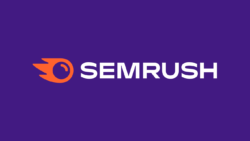 Perl / Semrush
Perl / Semrush Perl / KWFinder
Perl / KWFinder- Perl / SEO PowerSuite
- Perl / Recorded Future
- Perl / ThreatMetrix
 Perl / Cloudflare
Perl / Cloudflare Perl / Serpstat
Perl / Serpstat Perl / Advanced Web Ranking
Perl / Advanced Web Ranking- Perl / Magento
 Perl / Volusion
Perl / Volusion- Perl / 3dcart
- Perl / PrestaShop
- Perl / Crazy Egg
- Perl / SAP Business Solutions
 Perl / SEOptimer
Perl / SEOptimer- Perl / Microsoft Office 365
 Perl / Dropbox
Perl / Dropbox- Perl / Swift for TensorFlow
- Perl / SEO Audit Tool
- Perl / SEO Audit Pro
- Perl / MicroStrategy
 Perl / Slack
Perl / Slack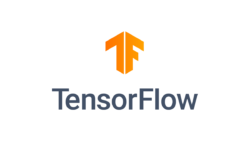 Perl / TensorFlow
Perl / TensorFlow Perl / SE Ranking
Perl / SE Ranking Perl / Moogsoft
Perl / Moogsoft- Perl / GoToConnect
- Perl / Conductor
Other Cloud Computing
- Perl / Google Cloud Platform
 Perl / Cloudflare
Perl / Cloudflare Perl / JetBrains
Perl / JetBrains- Perl / Oracle Cloud Infrastructure
- Perl / Microsoft Office 365
 Perl / DigitalOcean
Perl / DigitalOcean Perl / Udacity
Perl / Udacity
Other Data Visualization
- Perl / Recorded Future
- Perl / Crazy Egg
 Perl / Dropbox
Perl / Dropbox- Perl / Swift for TensorFlow
- Perl / MicroStrategy
- Perl / SAS Business Intelligence
Other Programming Languages
Other Software Development
- Perl / Git
- Perl / BugHerd
 Perl / GitHub
Perl / GitHub Perl / Visual Studio Code
Perl / Visual Studio Code Perl / JetBrains
Perl / JetBrains- Perl / Xcode
 Perl / Visual Studio Community
Perl / Visual Studio Community- Perl / Plastic SCM




